
This decision opened a new era, creating the premise for remarkable socio -economic development.
The person who made great contributions and played a decisive role in this historic event was Dr. Mai Liem Truc, former Deputy Minister of Posts and Telecommunications, Director General of the General Department of Posts and Telecommunications .
In a conversation with Dan Tri reporters, he shared passionate behind-the-scenes stories about the arduous journey of persuading and overcoming three prerequisites, along with memories of a friendly "pat on the shoulder" that also carried a great responsibility from the late Prime Minister Phan Van Khai.


- I got to know the Internet relatively early, in May 1991, when I attended an information conference in Washington DC, USA. At that conference, in addition to the official sessions, I had sideline contact with American and Australian friends. They introduced me to Internet technology. At that time, the Internet only had email and data transmission via FTP (File Transfer Protocol), there was no World Wide Web yet.
As soon as I saw that I could send emails and transmit data in a split second, I was very happy. In Vietnam at that time, our postal service had to deliver letters domestically or internationally with great difficulty; transmitting data to print Nhan Dan newspapers in Da Nang or Ho Chi Minh City was extremely difficult.
That is why I think it is necessary to bring the Internet to Vietnam as soon as possible and it will solve the current problems that the postal industry is facing.
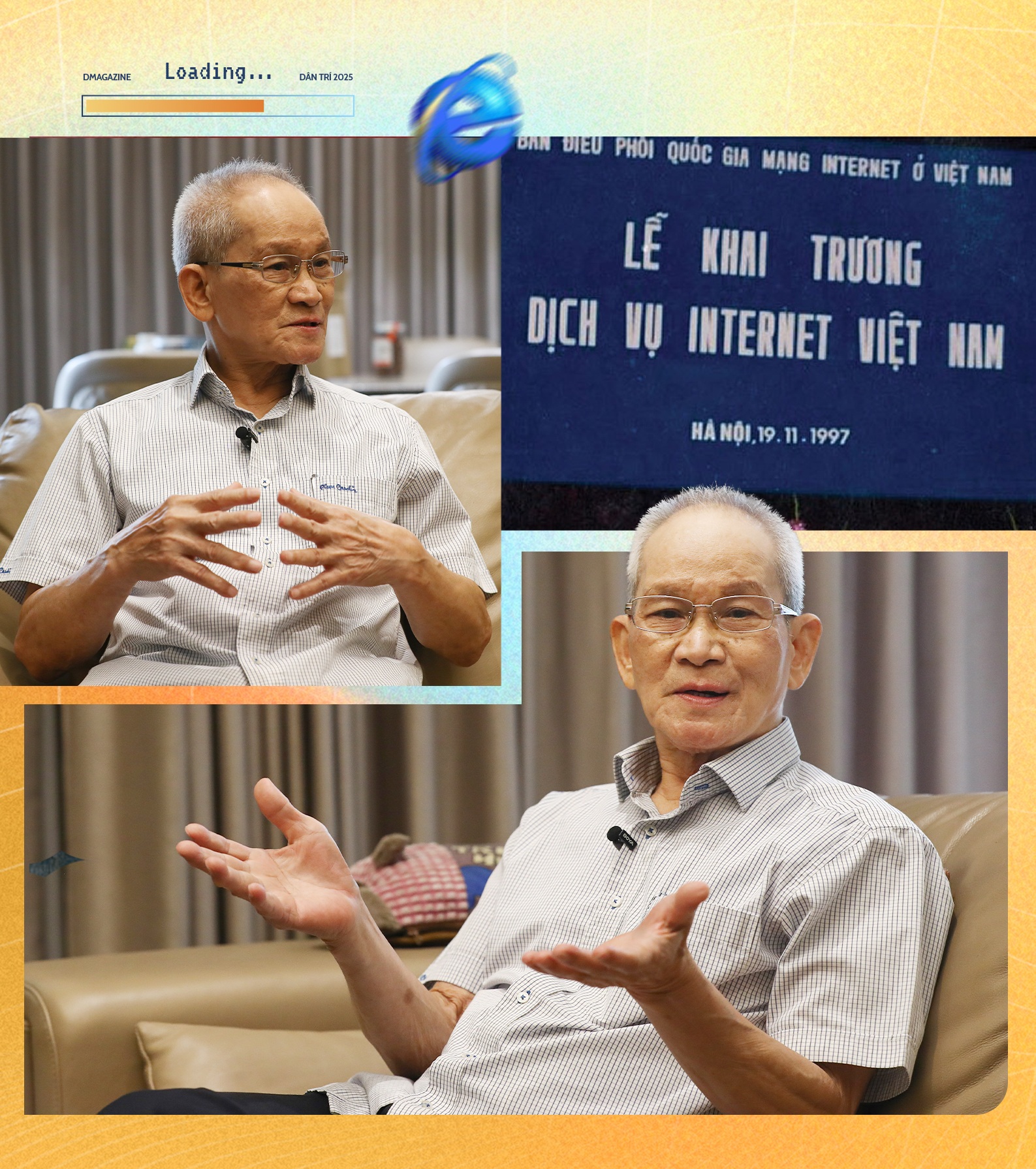
However, to bring the Internet to Vietnam, we must overcome major barriers. In other words, there must be three conditions.
First, there must be a telecommunications network or telephone network that has been automated and digitized. At that time, the Internet was transmitted over telephone lines, which people called dial-up. During the war, Vietnam's telecommunications network mainly served the military.
By 1990, the country had only about 100,000 telephone numbers. Long-distance and international calls could only be made by calling a telephone operator, and the Internet could not be connected to a telephone operator.
Therefore, the Post and Telecommunications sector has made efforts to automate domestic and international networks. By 1995, we had digitized and modernized the entire telephone network, connecting conveniently to the international network via satellite and submarine fiber optic cables. This is the first problem that has been solved.
Second, there must be businesses that understand Internet technology, invest in equipment and provide services.
At that time, some businesses had begun to study Internet technology and had experiments such as VNPT (then VDC), FPT and Information Technology Institute (later NetNam). They had certain experiments and were ready to invest if licensed.
Third, in the context of Vietnam, a country that has gone through a period of war, this is very sensitive. Bringing the Internet must be approved by the highest leaders of the Party and Government.
By 1996, when the telephone network had been digitized and automated, some businesses were ready. Therefore, we reported and explained to the Politburo, the Prime Minister and the ministries to be allowed to open the Internet.
This is a story that many people were involved in the process of persuading at high levels. The legitimate concerns at that time were the disclosure of state secrets, toxic information into Vietnam such as distorted information, defamation of the regime or sensitive information.
We had to give presentations, reports, and even do slide shows on connected labs for the top leaders to see. Eventually, the superiors gave the go-ahead, but there were still some concerns.
Therefore, the Government has established a National Coordination Board on the Internet in Vietnam, consisting of many ministries and branches to coordinate and harmonize.

- Since the Internet is so new to everyone, convincing is difficult.
We had to convince each other internally within the ministries. I still remember when I met with the National Coordination Committee on the Internet, comrade Le Kha Phieu, who was then a member of the Politburo; he asked many questions about how to not reveal state secrets, how to avoid harmful information.
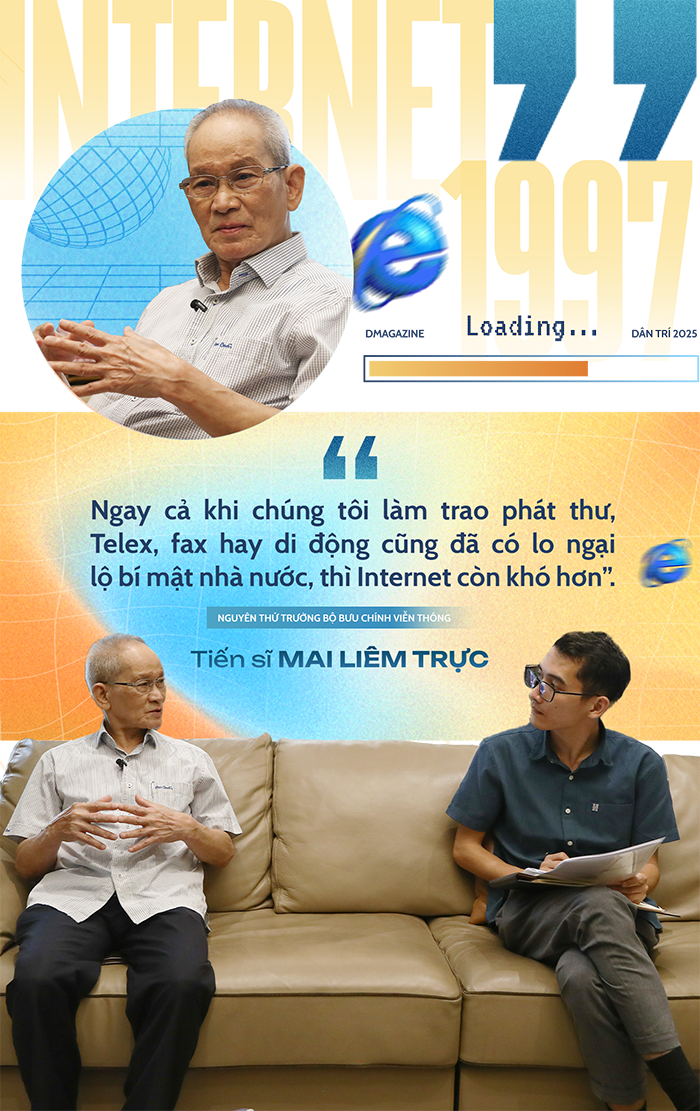
We reported very honestly. Comrade Le Kha Phieu asked: "So did we reveal state secrets?"
I stood up and said clearly: "Even when we did mail delivery, or when we did Telex, fax, and then mobile phones, there were concerns about revealing state secrets, but the Internet is even more difficult."
However, we have also come up with three main solutions to mitigate this.
The first is a technical solution: It is necessary to build a firewall, along with other software to limit harmful information.
Second is the legal solution: The General Department of Posts must have regulations on rules and procedures for operators, network operators and Internet users. There must be an inter-ministerial circular between the General Department of Posts, the Ministry of Public Security, and the Ministry of Culture and Information on Internet management and use.
Third is propaganda, guidance, and education: Propaganda to improve people's knowledge, so that people and the young generation choose good information and avoid harmful information.

Actually, when I tried to convince my superiors, I also felt that I was not very convincing when I talked about the good things of the Internet. Because it had not existed yet, and I had not seen its impact.
So, after reporting to comrade Le Kha Phieu, we continued to report to Prime Minister Phan Van Khai.
At the Prime Minister’s private residence, when he saw the delegation off to the gate, he put his hand on my shoulder, patted me gently and said: “Truc, try to manage the Internet well. If you open it and then have to close it, how will you talk to the world?”
A pat on the shoulder, a soft word, but for me, the responsibility is much heavier. This is the Prime Minister who directly assigned me the task, so I have to make an effort to make Vietnam's global Internet connection a success.

-Directive 58 of the Politburo is titled “Development and application of information technology in Vietnam in the period of industrialization and modernization”. This directive originated from Professor Dang Huu, who was then Head of the Central Science and Education Committee.
He was very anxious about the development of science and technology in the country. It must be said that the Central Committee for Science and Education presided over it and Professor Dang Huu directly did it. The content was very broad, but I only participated in a part of the telecommunications and Internet sector.
In the final draft of Directive 58, I included three important contents:
First, we must change our management perspective. Previously, the management motto of the Politburo and the Government was “to manage to what extent, then open to that extent”. In essence, this motto means that what cannot be managed is banned. Therefore, Internet cafes have not been opened for a long time, and the number of participants is very limited.
We had to be persistent in persuading. One time, I remember my colleagues in Phu Yen called to report that some unlicensed public Internet service points had been dealt with. I was very sad, because I supported the need for public Internet for the people, but at that time that was the motto, so I had to accept it.
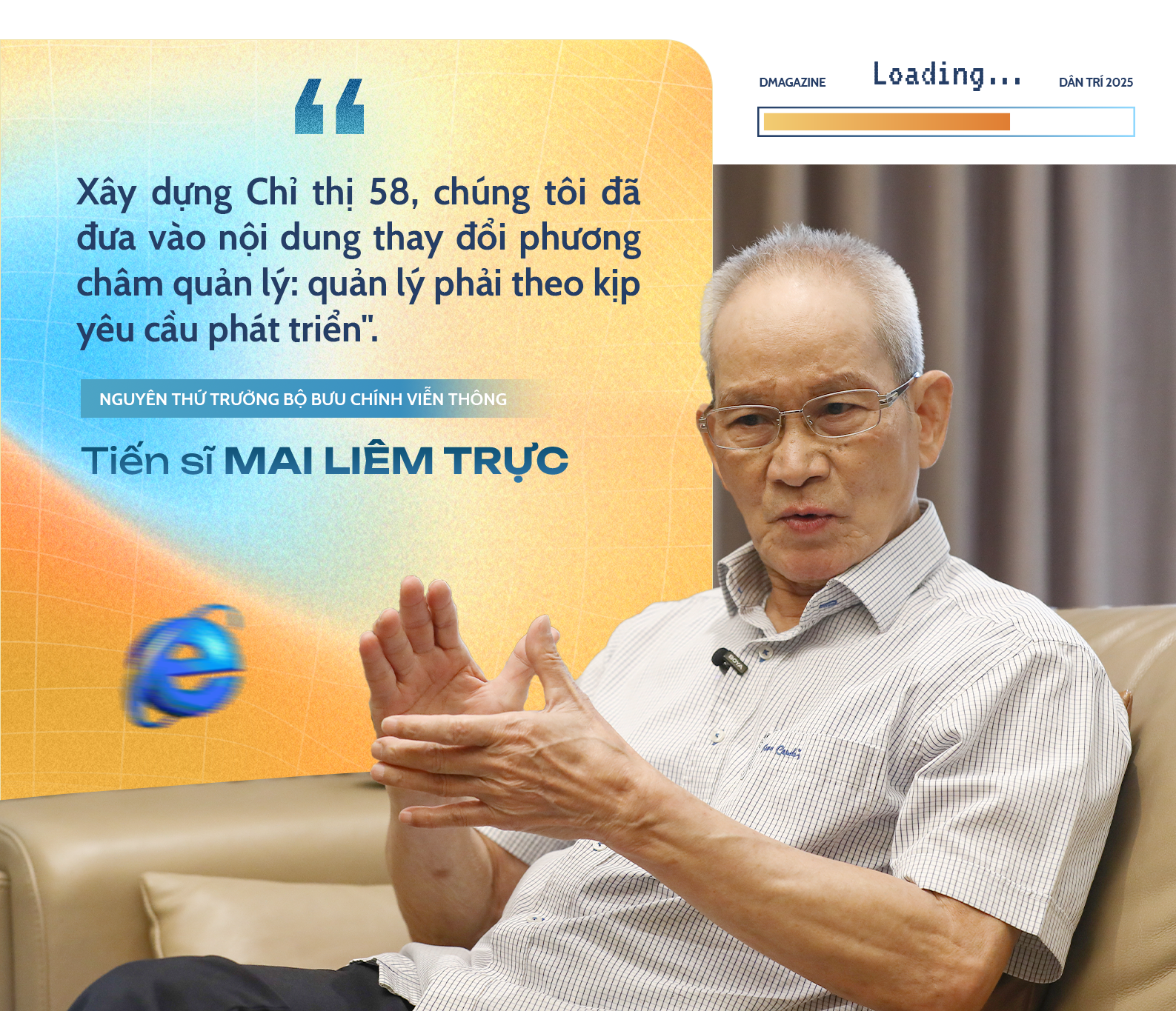
When building Directive 58, we included the content of changing the management motto as "management must keep up with development requirements". That is, we must follow the development to manage.
After Directive 58, I became bolder and told the authorities that the postal industry should continue to develop, and if you need to manage anything, just suggest it, and we will support it. Previously, the postal industry had to ask for opinions and get approval before doing anything. Now, we just do it, and you guys follow along to manage it.
Then the General Post Office drafted a new decree on Internet management, and after the decree was passed, we made many guidelines. The Internet started to explode, and Internet shops sprung up everywhere.
It must be said that this is a major change in management thinking. Recently, I was very happy when General Secretary To Lam said "resolutely abandon the mindset of if you can't manage, then ban".
Second, the mindset of opening up competition in the telecommunications market. This is the bottleneck of telecommunications, that is, the state of corporate monopoly.
Before 1997, when the Internet was launched, I signed licenses for four networks at the same time to create competition. But in fact, the Internet was still small at that time, with few users.
The real big deal was when I opened up the telecommunications market to VoIP (Voice over Internet Protocol) - telephone over the Internet and later mobile. That was a big deal because of the revenue implications.
There are opinions from leaders who are strongly concerned about opening the telecommunications market: "If we open it like this, it will be unmanageable and will be a loss for society."
In Directive 58, I included this second very important content, which is “opening up competition, creating conditions for economic sectors to participate in developing telecommunications and the Internet”. I used the Politburo’s directive to affirm this. That is the legal basis, we have followed the Party’s resolutions and directives.
Thanks to that, in the telecommunications market later when Vietnam joined the World Trade Organization WTO, foreign enterprises entered but could not win against Vietnamese enterprises, because we opened the market first, and enterprises were already used to competition.
Third, compromise on fees. Actually, this was a compromise I had to make with Professor Dang Huu, because he was very keen to reduce telecommunications and Internet fees for Party and State agencies. I agreed to this, but I knew in my heart that it was only temporary, when the market was competitive, the fees would automatically decrease.

- Knowing foreign languages helps me a lot. I participated in many international conferences of ITU (International Telecommunication Union), UPU (Universal Postal Union),... During the period when Vietnam was still under embargo, I was still guided by telecommunications companies from the US and other countries. Knowing foreign languages allows me to communicate and learn from their experiences directly.
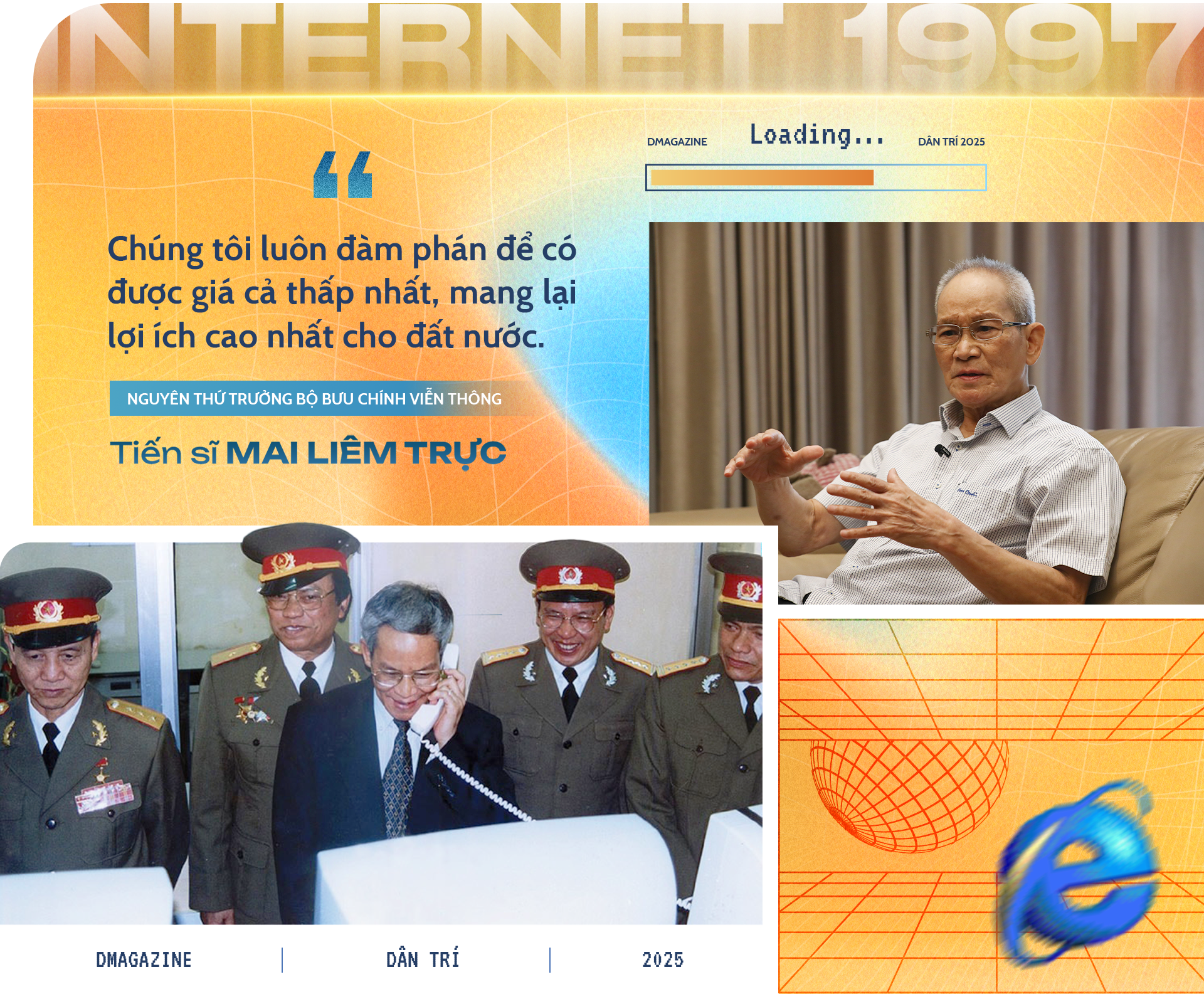
I remember one time at a conference in Australia, I asked the delegation about how to calculate telecommunication charges and they showed me. Or like the story about VoIP technology, I was introduced by the Hong Kong delegation at a reception.
I found this technology very interesting because the price was cheap, so when I returned, I told Vietnamese businesses, especially Viettel, to research and deploy it. Thanks to that, Viettel took the first step in the telecommunications market.
Knowing a foreign language helps me understand the culture and way of thinking of my partners. Negotiation is not about one side winning, but about both sides winning.
I can talk directly to their leaders to explain Vietnam's difficulties, helping them convince their superiors. In return, they also come to explain to me when I have difficulties with Vietnamese leaders. I always say that we are all in the same boat, we must go to the destination together.
I am proud to say that, during the decades of working with major partners in the world from the US, Germany, France, Japan, and Korea; we have always worked transparently, without any "kickbacks" or corruption. We have always negotiated to get the lowest price, bringing the highest benefits to the country.
I still remember on the day the Internet was launched, there were many reporters from major companies in the world attending. I was surprised because I thought this was just a technical issue.
But then I realized they came to learn about Vietnam's policies, our level of openness and international integration. When they asked, I answered directly in English. I did so that when they spoke in English, the information would not be distorted by my statements.
Foreign languages have helped me a lot, including in lobbying major US telecommunications corporations to convince the Government to lift the telecommunications embargo on Vietnam (unlocking the country code 084 to open up communication between the two countries").


- When the Internet came to Vietnam, we approached a global information society. First of all, it demonstrated Vietnam's policy of continuing to innovate, continue to open up and integrate internationally. Vietnam's position in ASEAN was raised. When saying goodbye to each other at international conferences, we confidently greeted them as "See you on the Internet".
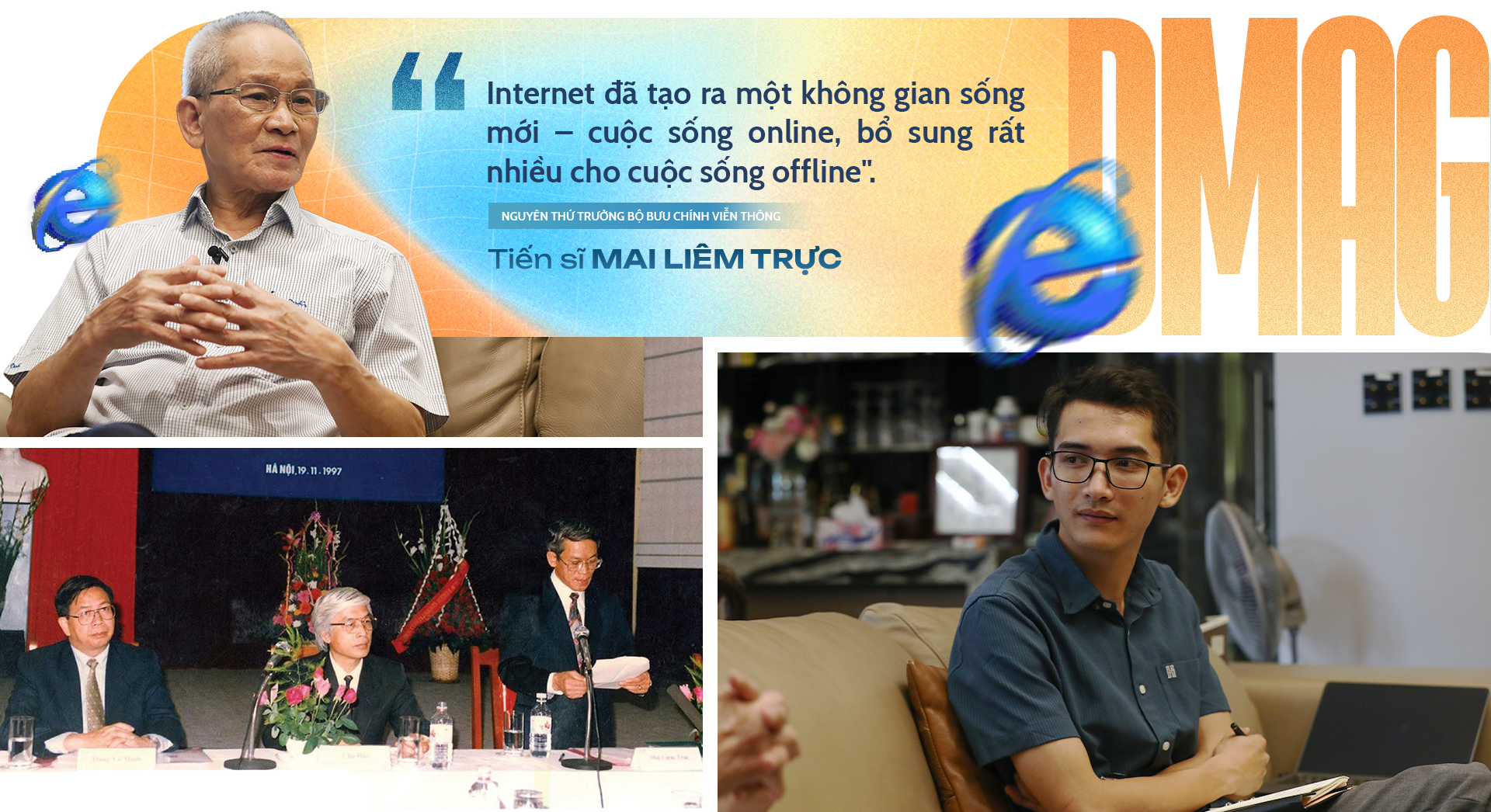
We also declare to foreign investors: "No matter where you work, where you set up your factory, where you invest, we commit to providing full telecommunications equipment and services from the Internet, mobile information to international."
They used to complain about the telecommunications infrastructure, but not anymore. This is a clear commitment, which helps attract foreign investment.
The third and also very important thing is that the knowledge of Vietnamese people has been greatly improved. In fact, in countries that restrict the Internet, people's access to knowledge is limited, as we all see.
In addition, the Internet has created the premise for a new industrial revolution. The world has entered the era of the fourth industrial revolution (industry 4.0), from digital technology. This revolution takes the Internet of Things (IoT) as its core.
IoT connects all things, creating a huge source of data. Data is the main resource of Industry 4.0. In addition, IoT, along with Big Data, cloud computing and especially artificial intelligence (AI), are changing all processes, business models and national governance.
Currently, according to statistics, there are 80 million Vietnamese people using the Internet, an average of nearly 7 hours per day. The Internet has created a new living space, a new living environment - online life, supplementing a lot for offline life.
Let's imagine a day without the Internet, what would banks do, what would government agencies do, e-Government, e-commerce be like? Everything would stagnate.
Fortunately, our country innovated, the Post and Telecommunications and Information Technology sector caught up with the opportunity, creating conditions for telecommunications and the Internet to develop, contributing to the success of the first innovation phase. And now, it is still the basis for the next technological revolution, which is digital transformation.
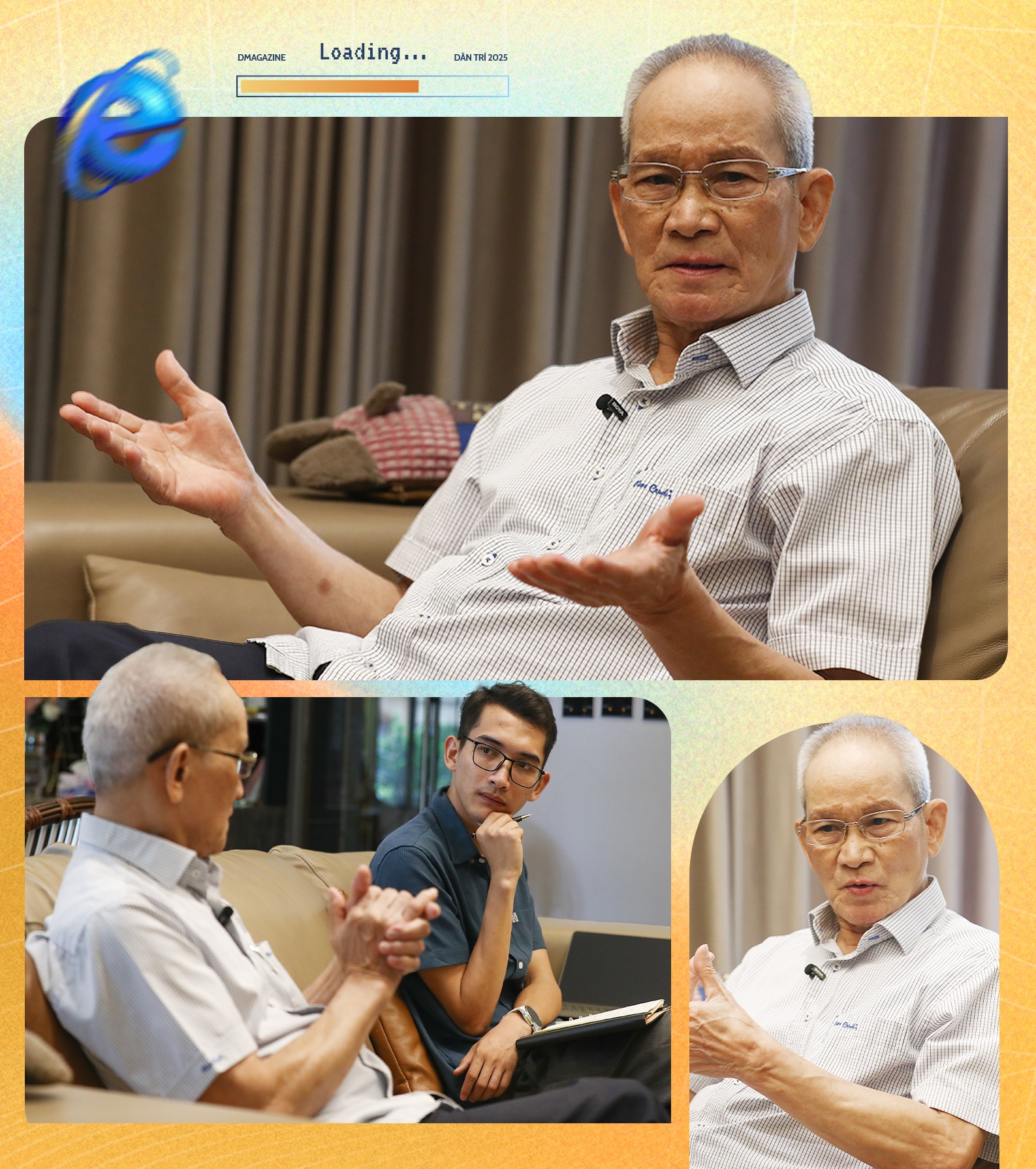

- The current story of the country is still about two main issues: Science and technology and institutions. These are the two contents that decide the success or failure of the "rising" that the country is carrying out in the next 20 years, achieving the goal of becoming a developed country by 2045.
In terms of technology, we only partially approached the third industrial revolution. But this time, we are almost at the same time as other countries approaching the fourth industrial revolution with the strong development of IoT and AI.
This is a great opportunity for Vietnam. This technology mainly comes from intelligence, and Vietnamese intelligence, if trained, is not inferior to anyone else. We have proven that in practice. The problem is that our infrastructure and institutions are still weak and have not yet fully exploited our capacity.
This is the “last and only” opportunity for Vietnam. If we do not take advantage of it, the world will run very fast and we will not have another chance. Therefore, I still support the view of “running and queuing at the same time”.
We have missed 8-9 years that should have been done since 2016. Now, with only 20 years left, we have to do it, and accept temporary difficulties. And to achieve this goal, we have to streamline the state apparatus, agencies, and organizations.
Everything must be done before the Congress, so that after the Congress the apparatus can be put into operation. In my opinion, the next 5 years will be the decisive 5 years. If we do not create momentum for development, remove barriers, and run at high speed, it will be very difficult.
I think society must share and sympathize with that, even when having to adjust job positions to suit the requirements of streamlining the apparatus.

- The biggest lesson I learned is aspiration. Why can a small country like Vietnam protect its independence? It is thanks to the aspiration for independence and freedom. During the first renovation, the aspiration to escape poverty helped us overcome the crisis.

Our generation has been dedicated and has the desire to escape poverty. We have tried to bring the best of the world to Vietnam so that the country can escape poverty and develop to an average level.
This revolution, this "rise", requires much more: to be strong, prosperous, and the people happy.
The challenge is greater and this task must be assigned to the younger generation.
I believe and hope that the young generation will have the aspiration and dare to take risks. Not only bring the best things of the world to Vietnam, but also bring Vietnam's creations, products, services, cultural values, arts, science and technology to the world.
When talking about Vietnam, people think of national brands. We must have brands in economics, science and technology. That is the mission of the young generation.
Only then will the country truly be strong and prosperous and will it be able to fulfill Uncle Ho's advice: "Stand shoulder to shoulder with the world powers."
Opportunities are there and we also have wise and courageous national leaders to steer the country, gain the people's trust and encourage the young generation to take risks.

- The young generation of Vietnam is very smart. There is a large number of young people, aged 25-40, who are working online quietly for foreign companies in Vietnam and have become successful. This proves that the potential of Vietnamese people is very large.
The problem is that we need to reform education. There must be a stronger revolution in the education system. Not only knowledge education, but especially important is education about personality, about people.
When we were young, our teachers taught us four things about being human: honesty, gratitude, collective consciousness and commitment to the common good.
I think the young generation today needs to have those things and educating people is not only the responsibility of the education sector, but of the whole society, from parents to teachers.
Second is the work of arranging and using people. For a long time, we have placed too much importance on background and procedures without properly evaluating work results and practices. We must evaluate cadres based on what they have done and what they have left behind, not on the positions they have held. We must appoint leaders who are capable, honest, clean, and dedicated to the common good.
I think this is the key issue. As General Secretary To Lam said, the success or failure of this “rising” is a matter of cadres, a matter of leaders. I think that is absolutely correct.
Thank you very much for taking the time to chat with us, Dr.!
Source: https://dantri.com.vn/cong-nghe/cai-vo-vai-va-quyet-dinh-lich-su-dua-internet-vao-viet-nam-20250822223329027.htm





![[Photo] Prime Minister Pham Minh Chinh chairs the meeting of the Government Party Committee Standing Committee](https://vphoto.vietnam.vn/thumb/1200x675/vietnam/resource/IMAGE/2025/8/23/8e94aa3d26424d1ab1528c3e4bbacc45)


![[Photo] General Secretary To Lam attends the 80th Anniversary of the Cultural Sector's Traditional Day](https://vphoto.vietnam.vn/thumb/1200x675/vietnam/resource/IMAGE/2025/8/23/7a88e6b58502490aa153adf8f0eec2b2)




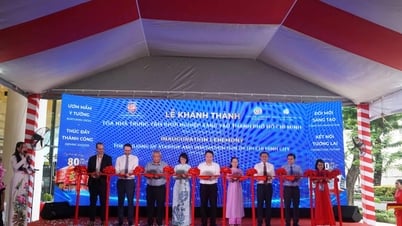
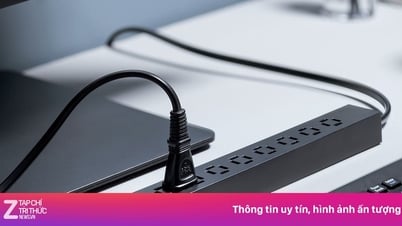


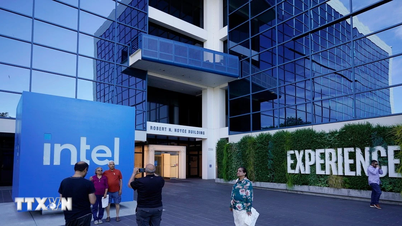




















































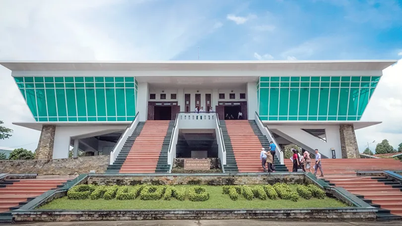

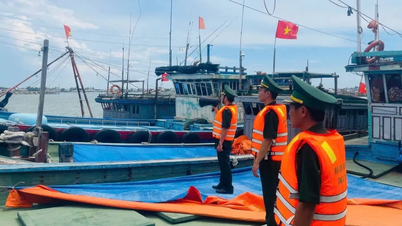

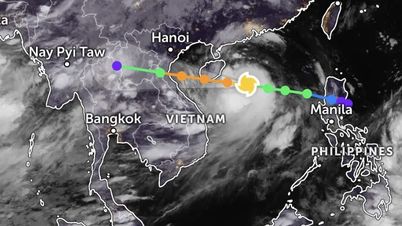
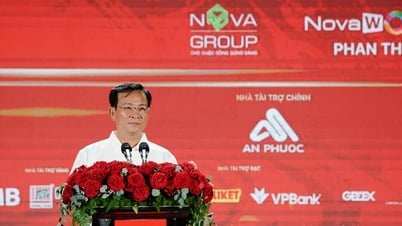

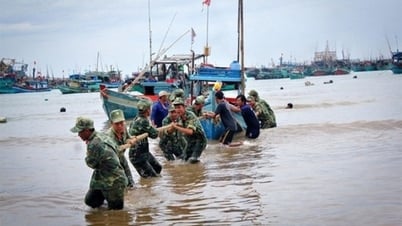

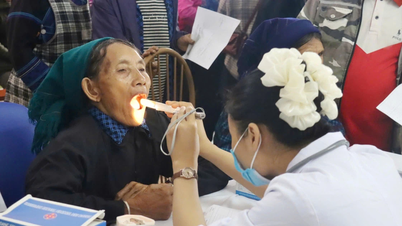














Comment (0)